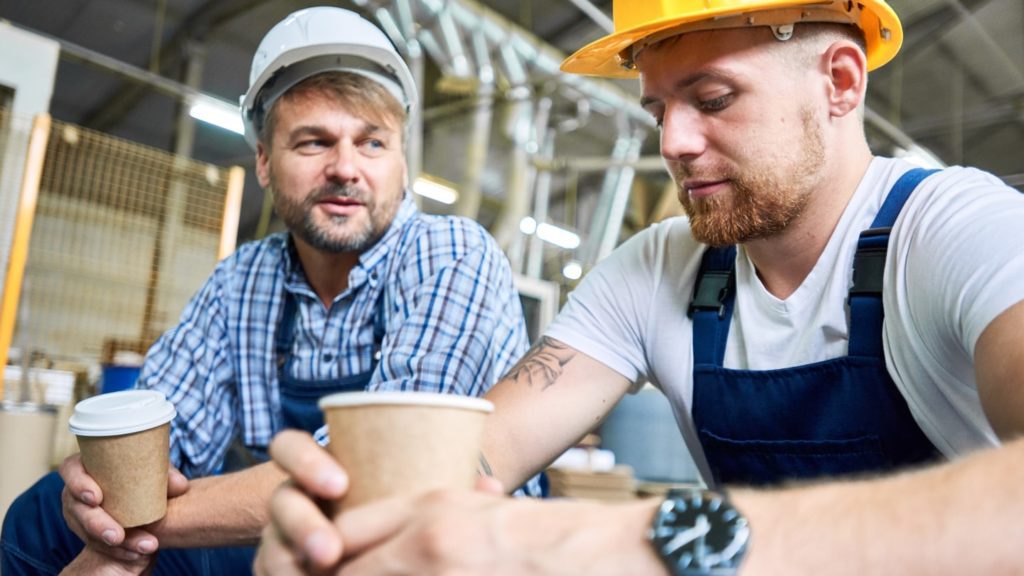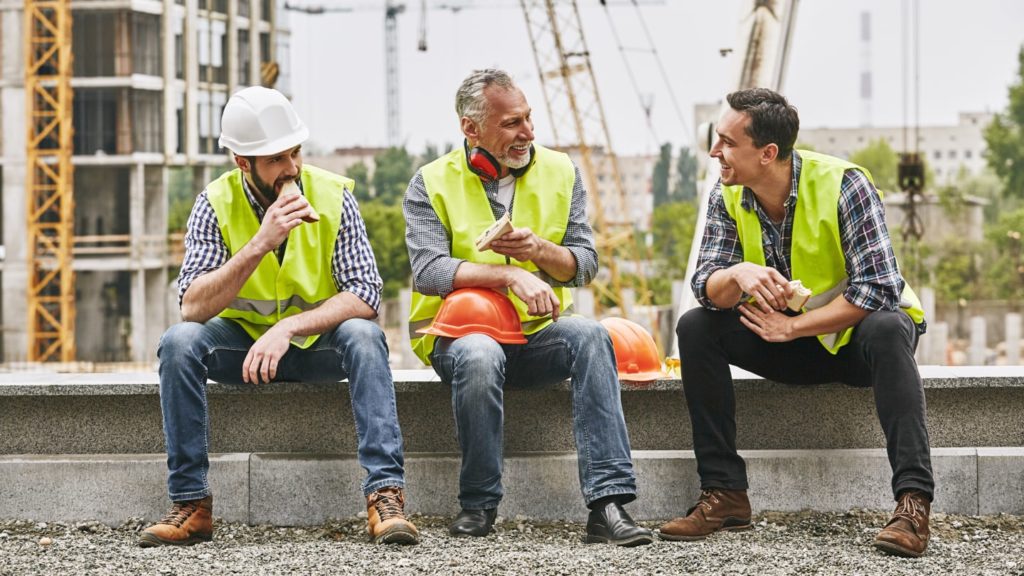We Need to Keep Talking About Onsite Mental Health In 2021
Blog-January 18, 2021
2020 was the toughest year most of us have lived through; one of the few silver linings was an increase in mental health awareness, with more people opening up about their struggles and more support being offered to vulnerable individuals.
Mental health is a particular concern for the construction industry, often referred to as a ‘silent epidemic’ amongst workers. According to the Office for National Statistics, suicide is three times more common for men in construction than the population average, and 90% of construction bosses report experiencing mental health issues because of work.

Ultimately, businesses lose at least £33 billion each year to mental health-related issues, according to a 2018 report.
LAURA BURKE – Wokplace Mental Health in the Construction Industry
Putting 2020 behind us can only be a good thing, but we must not allow moving on to mean forgetting what the year has taught us. There are still huge challenges to overcome for the construction industry, and more must be done to ensure the onsite environment is as positive and conducive to worker welfare as possible.
In this article, we’re going to look at a few central aspects of onsite welfare, and how we can develop more positive ways of working.

1. Open discussions will break the stigma
Perhaps the most fundamental challenge we face is the stigma that surrounds mental health. There are a number of negative associations and assumptions which have caused many vulnerable individuals to feel unable to discuss their experiences and emotions.
The traditional culture of construction sites tends to exacerbate this. Rather than sincerely discussing the challenges workers face, many in the industry take a stoic attitude towards emotional struggles, assuming that talking openly about their feelings will be taken as a sign of weakness.
This stigma contributes to the sense of hopelessness and isolation many feel at work, and if we want things to improve, we need to find ways to weaken that stigma and encourage more honest conversations in and around the workplace.
Persistence is the key to change. It may be difficult to change onsite culture, but it’s important that we don’t allow setbacks to get in the way. Ultimately, improving welfare and mental health awareness is not a short-term task, and we shouldn’t expect a single conversation to break the stigma completely.

2. Education is essential to make conversations happen
The best way to start more open conversations is through education: both employers and employees need to be given information to help them understand and process the challenges mental health presents.
Some have suggested larger sites should employ mental health professionals and counsellors, making education and support available whenever workers need it; others have championed specialised initiatives, educational courses and campaigns to get the message across.
There are tons of great resources available, from Mental Health At Work’s Toolkits to the Home Builders Federation’s construction specific content. The task for employers is simply providing the time and space for employees to make use of these resources.

3. Sites need to facilitate conversations
With long hours and extremely tiring physical labour, construction sites often exacerbate feelings of burnout in workers. While this leads us to a broad question about workplace culture and the kinds of conversations that occur onsite, it is also a practical challenge: how can managers make their site a more positive environment for workers?
64% of construction workers say they want their employers to provide more mental health support, and this can be achieved in a number of ways. Education is great, as are policies to reduce late payments and improve access to professional support.
Another factor is the space and comfort of a site’s facilities: traditional facilities are often poorly maintained or lacking the space and comfort to allow workers to take a proper breather onsite, contributing to the lack of security many feel at work.
Mobile welfare units and welfare vans, on the other hand, are a great way of improving the overall atmosphere and mood on site. Being up to 20% larger inside, with a roomier and more comfortable design, the modern ECO units provide a space where workers can have the conversations they need to have and ensure that workers know their employers truly value wellbeing.
Welfare Hire Nationwide, part of the Kelling Group:
Welfare Hire is the UK’s leading provider of eco-friendly Mobile Welfare Units. Here is some feedback from a Mobile Welfare Hire client relating to staff wellbeing on-site.
“The quality of the Welfare Hire units we have enables our teams to work smarter and deliver a much higher standard of work in a modern, comfortable environment. The fast and easy service means we can focus on the job at hand”